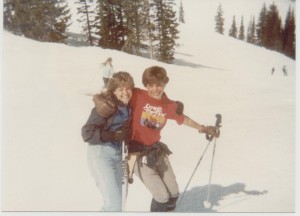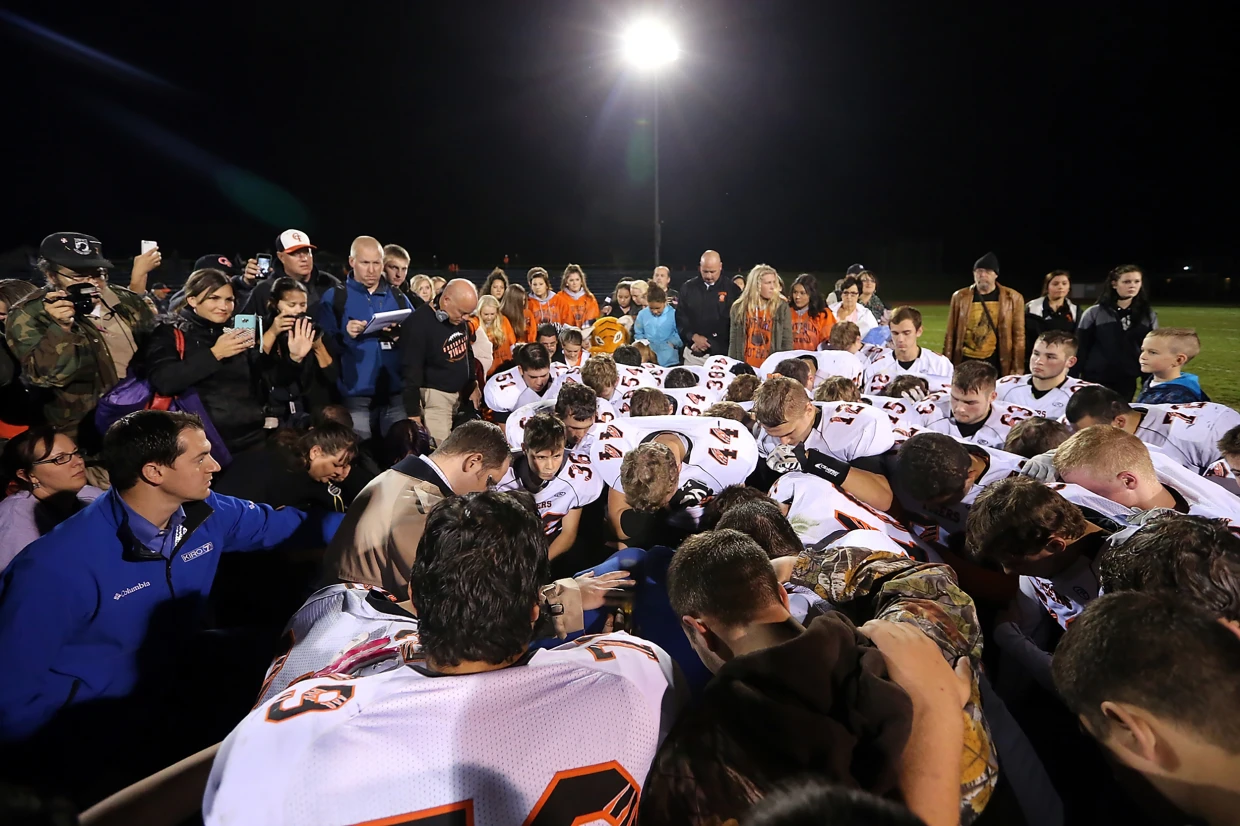My brother Kevin’s life ended in an instant. He fell asleep at the wheel, and his red jeep careened off a cliff in rural Utah. My parents got the call first from a state trooper, then called me.
Kevin was 23, barely getting started in life as a young man. He died on March 1, 1986, less than a year after he graduated from college and three months before my college graduation. Tomorrow night, I mark the Jewish calendar anniversary of his death; his yahrzeit begins when the sun sets. And next week, on March 1st, the date that will always unnerve me, I mark the 25th anniversary of my brother’s death. This is the first in a series of three posts I will write as March 1 approaches. Today: So many mourners do not understand the power of a death’s anniversary – until it hits them.
I at first treated grief as if it were a cut on the arm. Cover it up. It will heal. Within a few weeks of my brother’s death, I again wore the I-love-life grin I was known for. On the inside, I was a mess. I was 21, finishing an accelerated master’s program at Northwestern when I got the call that my brother was killed. My brother was living in Denver. I had airplane tickets on my dresser to join him for spring break in a few weeks. I had a job interview set up in Denver. My brother Kevin and I were two years apart and became best friends in our teen years partly because we felt isolated as the only Jews in our small Ohio town throughout high school.
And our personalities meshed well together. Kevin was mellow, full-of-life, athletic, and non-academic. I was more academic and more intense, yet equally eager for adventure. In the first year after my brother’s death, it was impossible for me to talk about the loss. And opportunities rarely presented themselves. I was a 20-something trying to finish college and establish a career. I had no time to mourn, and death was not exactly the topic du jour among my peers.
In the middle of the night, for months after my brother’s death, nightmares of him rolling over in his jeep interrupted my sleep. I cried myself back to sleep and the next morning went to class or an internship. In June 1986, three months after his death, I graduated from college. I went through the paces of celebration at graduation, unable to rejoice at a time when my brother was supposed to be there.
In the fall of 1986, I began work as a reporter for the Associated Press in Ohio. It was easy to keep grief on a back burner. Work, play, work, play. Then the first anniversary of my brother’s death approached. Now, as a 40-something well schooled in the ways of grief, I have a better idea how to prepare for the anniversary of a loss. But then, as a 20-something, I had no clue. I had no connection to my Jewish faith and no guidance from family or friends. I started a new post with the AP in Boston. I worked nights and weekends, making it difficult to have a normal social life and making it easy to be up at the worst hours of the day for me — between 1 a.m. and 4 a.m., the time period in which my brother’s jeep rolled off that cliff.
As March 1, 1987, approached, my confident stature as a career-driven reporter began to crumble. A colleague died in a car accident, and around me, coworkers talked about sudden death and its cruelty. Many commented how they had never lost anyone. Sleeplessness, anxiety, loss of appetite. I developed symptoms of depression. I saw a counselor, but could not open up about what I was feeling. I was still trying to figure it out. Amazingly, neither I nor the counselor linked my malaise to the date staring us in the face – March 1. My body and mind were reliving the sadness and shock of the year before.
The first anniversary of my brother’s death led to me quitting a job. It took me a month or so to get back into life and work. The second anniversary dealt worse blows. I quit a second job, and it took me more than six months to return to work and figure out how to beat the cruelest of all months in my life — the month of March.
Coming next: Lessons Learned: How Jewish ritual helped ease the pain of anniversaries of my brother’s death.
Special feature on this blog series: Below you can see a slide show of photos of what I call the Before – and After – Kevin years. The show includes photos of my brother as well as tiny excerpts from one of my early writings about losing a brother, published in The Orlando Sentinel in 1995. To see captions, click on the caption button on the slideshow. To see full screen, double click on the picture.






Your post is a beautiful tribute to your brother. It speaks to the importance of allowing ourselves to grieve for those we have lost. We need to be able to move through our grief or it debilitates us and we struggle to cope sometimes for years. Your comments about losing your brother at 20 something with no coping skills or mechanisms to process that experience speak to the challenges about this subject. Thank you for sharing your story. My thoughts and prayers will be with you next week on March 1st.
Linda, thank you so much for your thoughtful comments. At 40-something, it is easy to look back and see what I so lacked at 21 when my brother died. At 21, it was impossible to understand the punch grief delivers so wildly and painfully to our lives.
Today, in a new post, I write about what I have learned about the power of ritual.
Again, thanks.
Linda
Pingback: Tweets that mention The Power of a Day: Anniversary Haunts Mourners -- Topsy.com